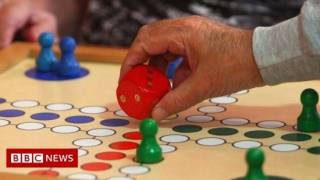News and Resources from the Ageing Playfully Network
Online gaming and well-being in the English Longitudinal Study of Ageing
Authors: Pamela Almeida-Meza, Dorina Cadar, Andrew Steptoe, Carrie Ryan
Play and games are important contributors to healthy ageing. However, it is not clear how online gaming contributes to the health and well-being of older people.
To find out we used data from 3,067 participants aged 50 years and older from the English Longitudinal Study of Ageing and performed regression analysis to assess associations between online gaming and quality-of-life, loneliness, and depression over a period of 7 years.
With an average age of 65 years (SD=7.01), 22% of respondents engaged in gaming, 65% were women and 48% were between 61 to 70 years old. Gamers aged between 50 and 65 years scored lower in self-realization (β=-0.33, 95% CI -0.62 to 0.04, p=0.03) than those over 65. Gamers who were widowed showed lower quality of life (β=-2.63, 95% CI -4.68 - to 0.58, p=0.01), when compared with those who were married or single. Being widowed also showed lower self-realization (β=-0.90, 95% CI -1.68 to -0.11, p=0.03), pleasure (β=-0.62, 95% CI -1.17- to -0.07, p=0.03) and autonomy (β=-0.58, 95% CI -1.18 to 0.12, p=0.06) from gaming. We found no significant connection between gaming and loneliness or depression.
Online gaming might be independently associated with lower levels of quality of life, particularly in terms of pleasure, self-realisation, and autonomy. This association might be modified by the individual’s age and marital status. Widowed individuals who game appear to be more likely to report a lower sense of self-realisation, pleasure, and autonomy with some implications for their well-being.
Bio: Pamela Almeida-Meza
Pamela is a Psychobiology Doctoral student at UCL's Department of Behavioural Science and Health, funded by Alzheimer's Society. After obtaining a degree in Clinical Psychology at Universidad San Francisco de Quito (2016), Pamela undertook an MSc in Health Psychology at UCL (2018). The results from her MSc dissertation led to her PhD project, which aims to investigate cognitive reserve and dementia in various cohorts in the UK.
Cognitive reserve theory has been proposed to account for the inconsistencies between measured brain pathology and its clinical manifestation. Cognitive reserve proposes that the knowledge and experiences individuals accumulate over their lifespan provide protective mechanisms against cognitive decline. However, it is not yet clear what activities contribute to an increased cognitive reserve
Pamela has published the results of her research, which can be found in The British Journal of Psychiatry here and in the Journal of Alzheimer's Disease here.
Media Coverage:
- Ageing Playfully was recently featured on BBC News (Playtime: Is it time we took 'play' more seriously?) and BBC podcast at the beginning of February (The Compass, Old age).
 | Playtime: Is it time we took 'play' more seriously? - BBC News But from building bricks in playgrounds all the way through to rolling dice in nursing homes, playing is a significant part of the human experience. |
 | BBC World Service - The Compass, Old age We don’t have to stop playing as we reach old age, and we probably shouldn’t. |
 Close
Close

